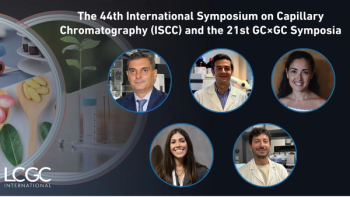
- January 2021
- Volume 17
- Issue 01
MOBILion and International Research Team Receive Grant for Parkinson’s Disease
MOBILion Systems, Inc., Pennsylvania, USA, and an international research team have been awarded a grant from The Michael J. Fox Foundation and the Shake it Up Australia Foundation to resolve biomarkers for Parkinson’s Disease (PD).
PD affects more than 6 million people worldwide. Glycosphingolipids (GSLs) are natural cellular fats and part of the PD epidemiology. They are components of cellular membranes that fulfil multiple functional roles, from cell structure and transport to signalling. However, the contribution of GSLs to PD is not fully understood.
The collaboration will aim to identify alterations in the metabolism of selective GSLs in specific brain regions that contribute to the early onset and progression of PD.
The project is funded by a grant from The Michael J. Fox Foundation and its partner the Shake It Up Australia Foundation and builds on several technical developments made by the research group at Maastricht Multi Modal Molecular Imaging Institute (M4I) in the fields of mass spectrometry (MS) imaging and lipid analysis. This research will include use of the company’sstructures for lossless ion mobility (SLIM)-based high-resolution ion mobility (HRIM) instrument to identify alterations in the metabolism of selective GSLs in specific brain regions that contribute to early Parkinson’s onset and accelerated progression rates.
“We are excited to apply high resolution separations technology to advance the characterization of glycosphingolipids”, said Dr. Melissa Sherman, MOBILion Systems CEO.
The assembled international team brings together the diverse expertise needed to dissect the metabolic GSL map in PD and includes Dr. Kim Ekroos of Lipidomics Consulting Ltd., the research group of Dr. Shane Ellis, University of Wollongong, Australia, Dr. Ron Heeren from the Maastricht Multi Modal Molecular Imaging Institute, The Netherlands, and Dr. Nathan Hatcher from the Department of Neuroscience at Merck.
“Mutations in the GBA1 gene—the most prevalent genetic risk factor for PD—results in accumulation of glucosylceramide and glucosylsphingosine. However, we do not know the breadth of alterations in glycosphingolipids and how this contributes to PD. We will combine mass spectrometry imaging with isotope labelling methods that allow us to track the synthesis and breakdown rates of glycosphingolipids in different brain regions, in real‑time, as well as using high‑resolution ion mobility mass spectrometry to study how larger, more complex glycosphingolipids are altered in PD. With this support from The Michael J. Fox Foundation, we can now utilize experiments that have never been done before to identify in what ways the glycosphingolipid metabolism can be restored in PD” said Dr. Kim Ekroos, founder and CEO of Lipidomics Consulting Ltd.
For more information please visit:
Articles in this issue
about 5 years ago
12 Tips for Successful Chromatography in 2021about 5 years ago
Trends and Developments in Data Handlingabout 5 years ago
The Starring Role of GC–MS in Bioanalysisabout 5 years ago
SCM-X 2021 Previewabout 5 years ago
3D-Printed Metal Column Developed for Micro-GCabout 5 years ago
LCGC Columnist Anurag Rathore Receives Agilent Thought Leader Awardabout 5 years ago
Vol 17 No 1 The Column January 2021 North American PDFabout 5 years ago
Vol 17 No 01 The Column January 2021 Europe & Asia PDFNewsletter
Join the global community of analytical scientists who trust LCGC for insights on the latest techniques, trends, and expert solutions in chromatography.




